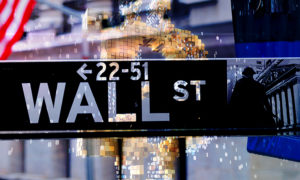CBOE Bitcoin Futures Launch As Regulatory Warnings Arise
CBOE Bitcoin futures trading kicked off. Trading went well although there were some glitches. It seems traditional markets are not prepared for the volatility of cryptocurrencies yet.

On Monday December 11th, 2017, the CBOE launched its Bitcoin futures trading. The results of the trading were generally positive, although there were a few glitches. The price of Bitcoin peaked at over $17,000 USD, before it settled below that mark. During the futures opening, the price increased by hundreds in a matter of minutes, prompting a halt in trading. Bitcoin is currently holding a support level at $14,000. According to sources from Bloomberg, there were no major hiccups during the first day of trading, however, the market pause mechanism was triggered due to abnormal volatility.
CBOE Bitcoin Futures Market Control
The CBOE has put an interesting concept into practice in terms of market control for Bitcoin Futures trading. According to the Washington Post, Michael Mollet, director of product development said: “We halted like our rules said we would and opened back up”. CBOE’s carefully planned market pause has obviously worked and will carry on being implemented after the success so far this week. CME is next in line to launch their Bitcoin Futures trading, which is scheduled to take place on December 18th. All factors considered, this is an exciting time of the year for all cryptocurrencies as we start to experience Bitcoin’s rise within the mainstream.
Gold Demand Not Threatened by Bitcoin Futures – A Word from Goldman Sachs
Alongside all the speculative opinions and following the $41 million USD in trading on the first day of the CBOE Bitcoin futures, some are worried for the status of gold as the classic store of value asset. Goldman Sachs came out to the media with its views on the subject via CNBC. The investment bank described the general investment pool attracted by Bitcoin futures as ‘vastly different’ from that interested in gold. During the first day of trading, there was not as deep of an impact on gold prices as some thought.
While Bitcoin’s overall market capitalization is approximately one-thirtieth of Gold’s $8.3bn USD, there is room for disruption at a larger scale, should the bullish trend continue in the near future. Bitcoin is still in its infancy in comparison to an asset like Gold, even though it’s not a fair comparison as an asset because it shouldn’t be in the same asset class. Having been around for only a few years, the exponential growth of the leading cryptocurrency will be greatly supported by the ‘hype’ created around it.
Hong Kong Regulatory Body Issues Warning During Futures Launches
While the CBOE and other financial organizations are launching regulated Bitcoin futures trading, in other places around the world regulators have been issuing warnings against Bitcoin trading. The Securities and Futures Commission (SFC) of Hong Kong has issued a formal warning against unregulated Bitcoin futures markets. Without a doubt, Hong Kong’s SFC did not release the circular coincidentally on the same day as CBOE’s futures launch. This was a notable way of making a statement.
This will feed an already interesting discussion in terms of regulation when taking the above into account. Hundreds of companies are now offering cryptocurrencies within their investment portfolios in different ways. These companies are effectively operating in a grey area. On the other hand, there have been some Ponzi schemes involving cryptocurrencies as well, which shows how public understanding about these assets is still lacking.
Final Thoughts
Hopefully Bitcoin futures trading will raise the profile of cryptocurrencies and the general public will strive to become more knowledgeable about them, although, most people don’t really understand what their money is being invested in most of the time. It is ironic to think that the first P2P form of digital cash, which was designed to reduce middleman intervention and teach people that understanding the assets that they hold is crucial, is now becoming more mainstream as institutional investors start trading with it under the same conditions they trade other traditional assets for their clients.







